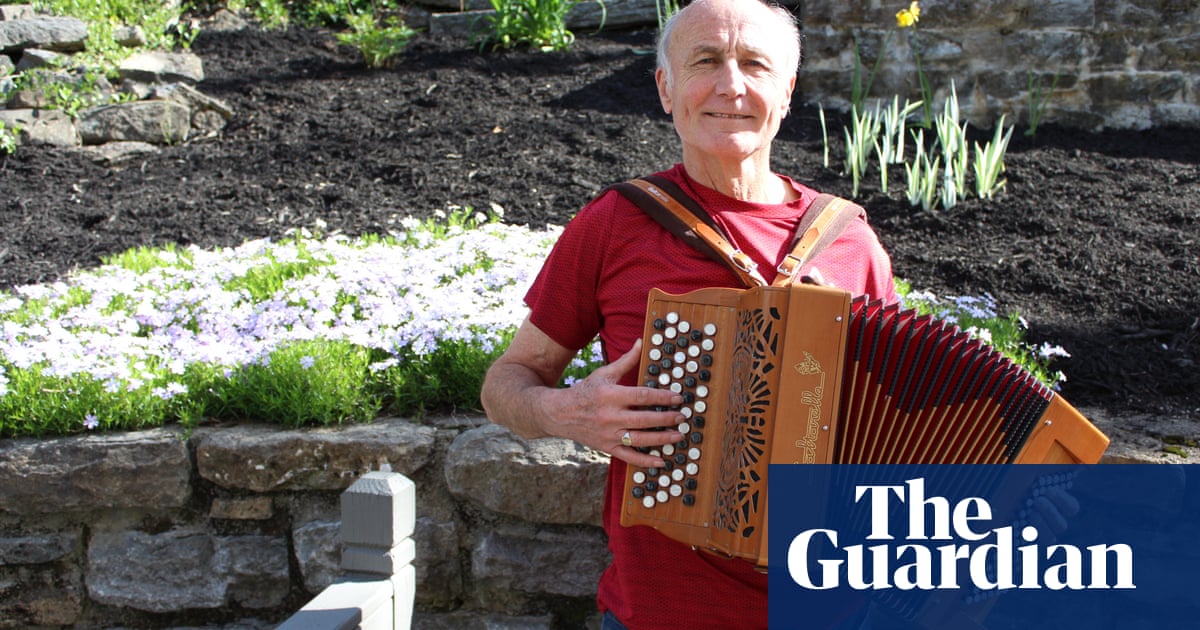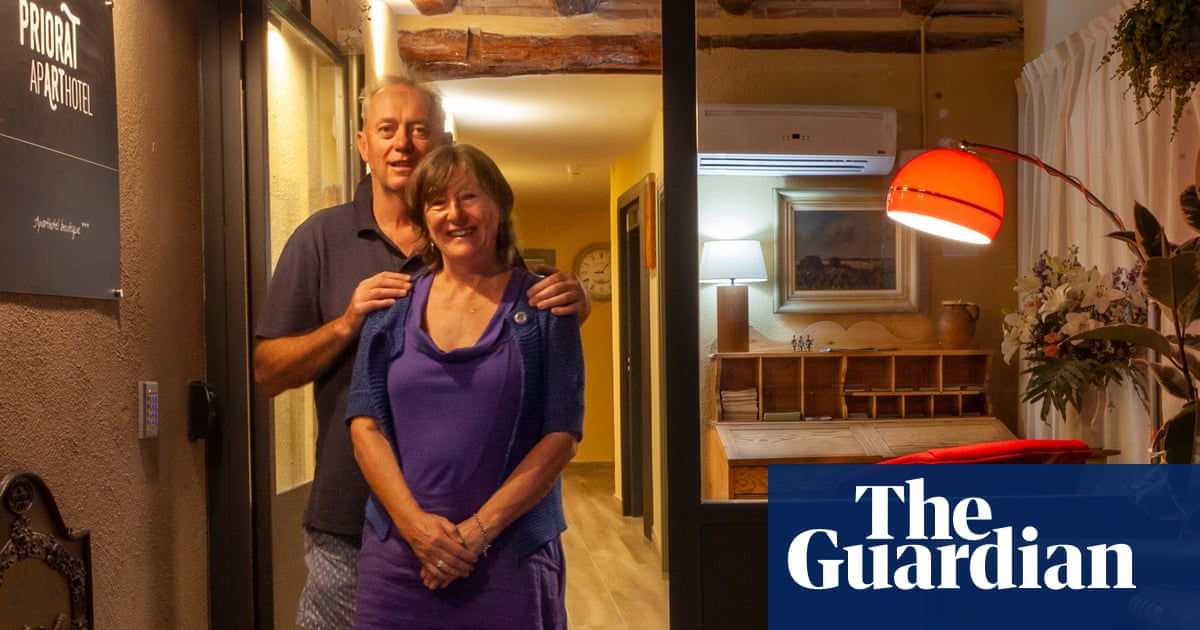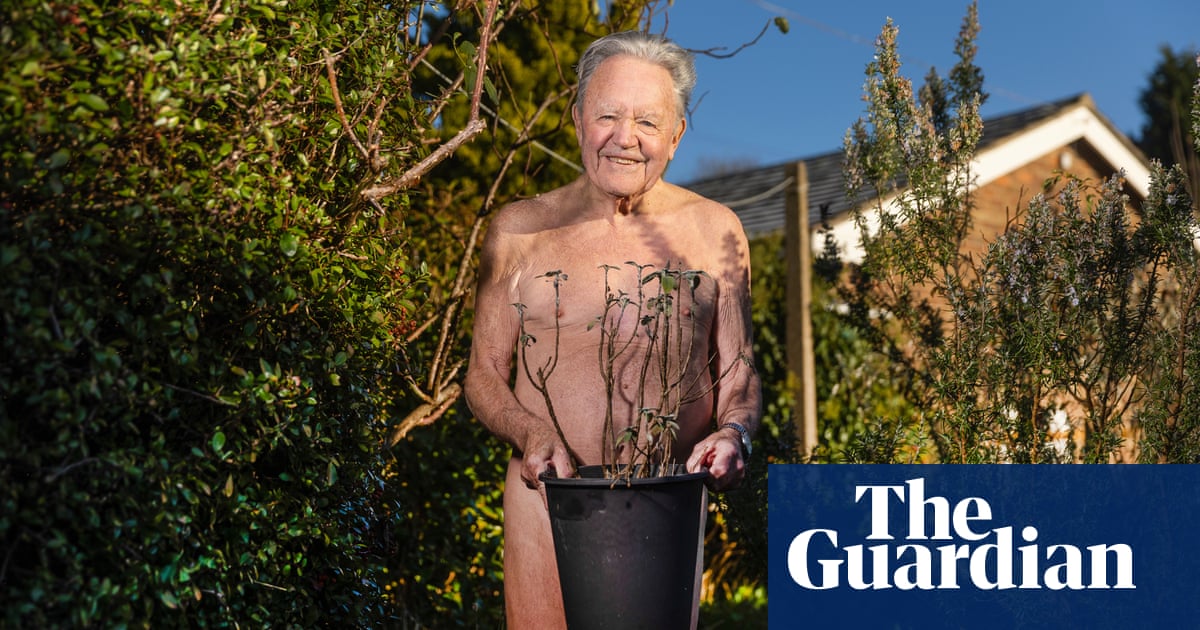
Dafydd Emrys Jones describes himself as a “passionate Welshman”, although he hasn’t lived in the country since childhood. For the past 32 years he has made his home in Cincinnati, Ohio, but the 74-year-old has had “a long journey” to get there. He was born in Wrexham, north Wales, “a city put on the map by the generosity of Ryan Reynolds,” he notes (Reynolds and co-owner Rob McElhenney bought the local football club in 2021). He moved south to Cardiff, then passed through England, Germany, Belgium, France, Switzerland and the Netherlands during his career as an IT troubleshooter, but his Welsh identity has always remained precious. When people ask if he’s English, he tells them firmly that he’s Welsh: “They say ‘oh, it’s the same thing’; I say no!”
He did not, however, speak Welsh – a source of embarrassment. But when the Covid pandemic hit, Jones realised he had an opportunity to rectify that. As everything closed down, his usual hobbies – tango and ballroom dancing, or playing music with his Celtic band, Ceol Mhor – were not available to him. “I’m not married, I have some friends, but I wasn’t going out. I was getting bored every night. So I sat at home thinking, bad as this Covid thing is, it also gives me an opportunity.”
Although his parents spoke Welsh – and it was his father’s first language – Jones and his siblings grew up speaking English. At school in Cardiff, he had two years of lessons, but, he says, “I wasn’t interested then.” Now he was. Jones is not short of determination, as he proved aged 65 when he set himself the task of learning the button accordion. A late-night meander on YouTube led him to fall in love with the beautiful but fiendishly complex instrument. “I thought, before I die, I would love to get my hands on one of those.” The next day he bought a $6,600 Italian-made beauty online, then set about trying to learn how to play it. With no local teachers, he was soon back on YouTube, and within five weeks, he had managed to master his first tune. “I don’t like to be defeated by things. Early on, I was thinking I’ve bitten off more than I can chew, but I thought, ‘If that guy on the internet can do it, I can do it.’”
At 71 and with a calendar emptied by Covid, he turned that determination towards learning the language of his homeland, even though it was 3,800 miles away. Jones started out using the Duolingo app, and still does. “If I look on Duolingo, I could tell you, I’ve done something like 838 consecutive days of Welsh.” Duo, the app’s notorious guilt-tripping owl, must be happy: “Tylluan,” he says. “That’s owl in Welsh.” The hardest part is the pronunciation, he says, but a childhood surrounded by Welsh speakers helped hugely.
Jones began listening to Welsh podcasts and joined online conversation classes with the Welsh Studies Institute in North America, which brings together Welsh speakers from across the US and beyond. “You’d be amazed at the number of people in America with Welsh heritage. They were born here but they speak Welsh; it just amazes me.” He has risen through the ranks: having started on the beginner level, he is plotting the jump to “advanced” imminently. Last summer, he even entered a Welsh essay competition. “The subject was Daw yr Haul ar y Bryn, which means ‘the sun is coming over the hill’. Most people wrote about the end of the pandemic, how the sun is shining again. But I’m very into sports and decided I’d do something different.” Jones wrote about the Welsh football team (he calls it soccer, betraying his 32 years in the US) and their journey to the 2022 World Cup finals: “I told the whole story in Welsh.” He won. “I was delighted, and proud and all the rest of it.”
Finding people to speak Welsh with has proved predictably tricky in Cincinnati. “I haven’t found many and certainly not around here.” This summer, he’ll get the chance at a language immersion class he’s attending in Vermont. In the meantime, he has written a song in Welsh: Mae gen i (I have). The first verse, mae gen i angen (I have a need), he explains, is about nostalgia for people he has lost in his life. The second, mae gen i obaith (I have a hope), wishes for less conflict and more peace in the world. “Fat chance of that happening but one can always hope …” A third verse, mae gen i breuddwydd (I have a dream), is about the Welsh football team’s World Cup hopes, again. The rhymes were a challenge, but he’s keen to continue writing songs in Welsh.
The rest of his family are back in the Cardiff area but, despite that, none of them have taken to Welsh like he has. “My sister speaks some, but she’s not into it in the same way.” He has followed the resurgence of Welsh back home with keen interest: “It’s growing; it’s the oldest living language from Europe which is still being spoken. It’s never died.” Jones is overdue a visit – he hasn’t been since he learned the language – and has even considered moving back. “I’m still trying to figure out my life,” he says. For now, sunny mornings spent playing the accordion on his deck give him pause; it’s 27C over there. “Then I watch a rugby game and see the abysmal weather, high winds and torrential rain, and I think well, the sun’s shining here in Cincinnati …”
Tell us: has your life taken a new direction after the age of 60?












